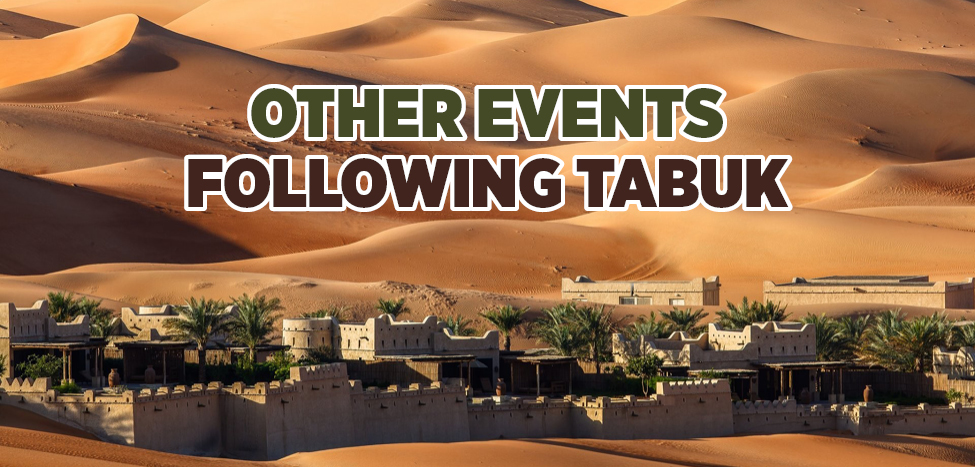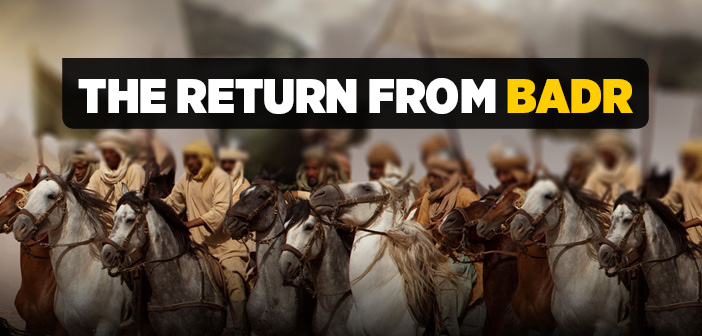What are other events following tabuk?
The Blessed Prophet -upon him blessings and peace- had a son named Ibrahim born from the Egyptian Mariyah -Allah be well-pleased with her-. The little Ibrahim fell ill after the Prophet’s -upon him blessings and peace- return from Tabuk and passed away a short while later. The Blessed Prophet -upon him blessings and peace- was much grieved. Silent yet compassionate tears trickled from his eyes. He then said, “The eye cries, the heart grieves, but we do not say any word other than that which pleases our Lord! By Allah, Ibrahim, we are much grieved by your separation!” (Bukhari, Janaiz, 44; Ibn Saad , I, 138)
The Blessed Prophet -upon him blessings and peace- then asked for a stone to be brought, which he then placed at the head of the grave. Ibrahim’s -Allah be well-pleased with him- grave was now marked out. It was first his grave to be sprinkled with water.[1]
A solar eclipse took place on the same day. Some Companions, referring to a custom from the Age of Ignorance, explained the eclipse with Ibrahim’s -Allah be well-pleased with him- passing away. The Prophet of Allah -upon him blessings and peace-, on the other hand, offered two rakahs of salat as the eclipse was taking place and to indicate he did not condone the thoughts held by some Companions, stated, “The sun and the moon are two signs from among the signs of Allah. They are eclipsed neither by anyone’s death nor by anyone’s life. When you see their eclipse, engage in the remembrance of Allah and offer salat!”[2] (Nasai, Kusuf, 14)
In the month of Rajab the Abyssinian Negus passed away. The Blessed Prophet -upon him blessings and peace- gave the news of his death to his Companions instantly, on the day, despite of the sea and the distance separating the two lands.
“Offer the funeral salat of your brother”, he said, “who has passed away in a distant land!”
“Who is he, Messenger of Allah?” asked the Companions, to which the Noble Messenger -upon him blessings and peace- replied, “Negus Ashama…Today, Ashama, the righteous servant of Allah, died. Ask forgiveness from Allah on your brother’s behalf!” He then led the Companions in the funeral salat of the bereaved Negus. (Muslim, Janaiz, 62-68; Ahmad, III, 319; IV, 7)
News soon arrived in Medina, confirming that the Negus had passed away on the exact day told by the Blessed Prophet -upon him blessings and peace-.
Umm Khulthum -Allah be well-pleased with her-, the honorable daughter of the Blessed Prophet -upon him blessings and peace- and the wife of Othman -Allah be well-pleased with him-, also passed away, in Shaban, the following month.[3]
Two months after the Campaign of Tabuk, the month of Dhil-qadah saw the mischief and malice ridden life of Abdullah ibn Ubay, the leader of the hypocrites, finally come to an end. His death shook the foundations of the hypocritical movement in Medina. A majority of hypocrites afterwards repented and ended up becoming genuine Muslims.
Ibn Ubay’s son Abdullah came to the Blessed Prophet -upon him blessings and peace- immediately after his father’s death and passing on to the Prophet -upon him blessings and peace- his father’s will, said, “Abdullah ibn Ubayy is now dead, Messenger of Allah. I ask for your shirt as his shroud, for you to lead his funeral salat and pray for his forgiveness!”
The Blessed Prophet -upon him blessings and peace- removed his shirt of his back and gave it to Abdullah -Allah be well-pleased with him- and after the corpse had been prepared, offered his funeral salat. This, however, brought about the below Revelation:
“And never offer prayer for any one of them who dies and do not stand by his grave; surely they disbelieve in Allah and His Messenger and they shall die in transgression.” (at-Tawbah, 84) (Bukhari, Janaiz, 23; Ibn Majah, Janaiz, 31)
Upon being asked as to why he agreed to hand his shirt over to enshroud the corpse of a notorious hypocrite and offer his funeral salat, the Prophet of Allah -upon him blessings and peace- explained, “Neither my shirt nor the salat I pray for him will protect him from the punishment that comes from Allah’s way. Yet by doing so, I anticipate the guidance of a thousand of his people!”
Indeed, witnessing the Prophet’s -upon him blessings and peace- approach, a thousand former hypocrites of Khazraj, did leave their ways of old for good and became Muslim.[4]
[1] Ibn Saad, I, 144; Ibn Abdilbarr, I, 59.
[2] Festivities observed in some regions during both the solar and lunar eclipses are superstitions that have nothing to do with Islam, which instead enjoins the offering of salat and prayer simultaneous to the two events. Considering the sound of an owl bad luck and shedding tears stems, again, from a similar superstitious beliefs.
[3] Ibn Saad, VIII, 38.
[4] Aynî, VIII, 54; Diyarbakrî, II, 140-141.
Source: Osman Nuri Topbaş, The Prophet Muhammed Mustafa the Elect II, Erkam Publications





